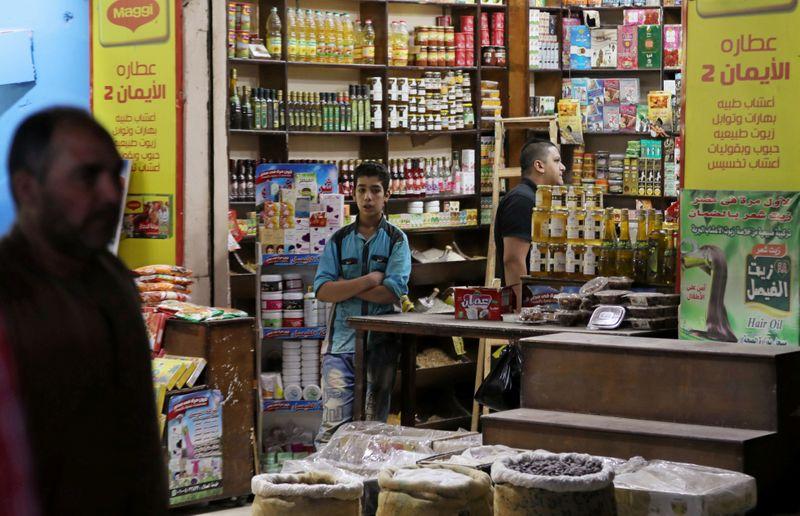Egypt is suffering a clear lack of investments, which many businessmen who run factories in various industrial zones across the country have blamed on low-qualified with low production rates.
Since the 25 January revolution, investors have looked upon Egypt with caution and some have even chosen to set up shop elsewhere. During Morsy’s one-year in office alone, Egypt saw one of the worst falls in the number of millionaires in the world, losing around 3,000, according to the latest report released by the Credit Suisse Research Institute’s (CSR) Global Wealth.
Street violence, unrest and turmoil of course played a large role in investor's withdrawal of Egypt, as investment inflows fell slightly by 12.4 percent, from $2.46 billion in the second quarter to $2.16 billion in the third quarter of the 2012/2013 fiscal year.
Meanwhile, the number of Egyptian factories which have closed in recent months hit alarming indices, affecting 613 factories who have halted their operations.
Though he says the key reason for a decline in investment is instability, Alaa El-Sakty the chairman of Badr Investors Association (BIA) emphasized that lack of labor in the Egyptian market still plays a substantial role in the withdrawal of investors.
“How I can launch a new project if there are no well-qualified workers?” asked Hossam El-Hawary, the owner of a wrought iron manufactures at Badr industrial zone.
El-Hawary is a small businessman who owns a small factory producing wrought iron products using high leaser techniques. The factory employs a modest number of workers and designers.
“The well-trained workers are mostly not available, and besides those few who are trained are very careless and not disciplined,” El-Hawary said, adding that sometimes workers they skip many days of work due to mere apathy.
The well-trained workers are volatile, which means after working for a very short time they could leave their post, which has recently pushed some businessmen to force the newly hired workers to sign contracts for a defined period to guarantee the workers stability.
“I've felt the crunch for years with 30 workers, who come and go after a very short time and other works with very poor qualifications,” El-Hawary said.
Many business owners agree with El-Hawary on this point. “I’ve been suffering this problem for a long time. Now I am considering halting the operations of my factory,” said Sayed El-Asiouty, the owner of a wood manufacture factory established three years ago.
“Unfortunately we do not have the well-trained workers or those who are capable to be trained. Workers in Egypt have lost the concept of living conscience,” said Hatem Serry, owner of furniture factory in 6th of October City.
While Serry asserted that he planned to start a new branch of his factory in another region, but he says he is hesitating and uncertain to carry forward due to the absence of workers.
“In 6th of October city, there were a number of Turkish businessmen who launched some new projects and factories, but after a while we surprised that they suspended their businesses due to poor quality of workers,” Serry explained.
El-Hawary noted that there are many factories called on the government to amend the workers law which bans importing of foreign workers. “Foreign workers work hard and are very qualified,” said El-Hawary.
Other businessmen agree. “Yes I do encourage the proposal of importing workers from abroad because they are much more qualified and demand a smaller salary,” said Adel Saied owner of home furniture factory at Rawd Al-Farag neighborhood.
Moreover, Saied pointed that the few qualified workers in Egypt demand high salaries which consequently raise the cost of the production that leads to increase in prices.
Echoing on this opinion, Serry compared the current situation of the Egyptian worker and 20 years ago. “Recently, the Egyptian worker is paid much money with less effort and production,” he said ironically.
El-Asiouty, however, is not a supporter of importing foreign labor. He noted that during the last period, many factory owners convened with the officials of BIA to discuss the current issue and to give them the businessmen the chance to get well-trained foreign workers.
Poor technical education
In days long past, if a family's breadwinner had a technical specialty, he would bring up his sons to follow the family business and join the same profession at the early age of 10 and by the time he would reach 20, he would be experienced enough and become a producer. This, however, this is no longer the case.
Many business community say that with the disappearance of this apprenticeship system, there has been no strong educational system to replace it, leaving workers with no virtually skills.
“There could be a crisis, but it's a result of a big bad training system and education,” said Moustafa Rostom member at Egypt Federation of Workers.
Serry agrees, saying that workers need technical training centers which could be in partnerships with well-experienced businessmen in the specific fields that require training.
“I believe the government should offer a full-paid education services until the primary level, it could be further extended incase of talent students, but the others should choose either to pay for a secondary education or a technician one,” Serry said.
“We possess good and qualified workers but outside Cairo, however most of the industrial zone is in Cairo, so we need a well distribution of workers,” said El-Sakty.
Workers escaping to Gulf nations
The migration of Egyptians to work in the Gulf, could be another substantial reason for the lack of well-qualified workers.
“Egypt has experienced a woe of lack of workers since 1975, when most of the well-trained workers left the country and headed to the Gulf nations,” said Saied.
Saied said that his factory dates back to 60 years ago, but the well-qualified workers problem only became critical about 10 years ago as more and more workers left to the Gulf.
The generation of workers who escaped to Gulf nations not only decreased the well-qualified workers in Egypt, but also produced a population of well-qualified and trained workers in the countries they took a refuge, benefitting those countries and increasing the gap between the two regions.
Saied called on the need for foreign workers to train the Egyptian workers, moreover he asserted on the necessity of laws that could prevent workers drain.
“Now, we do not have either qualified workers or discipline,” sighed Saied.




